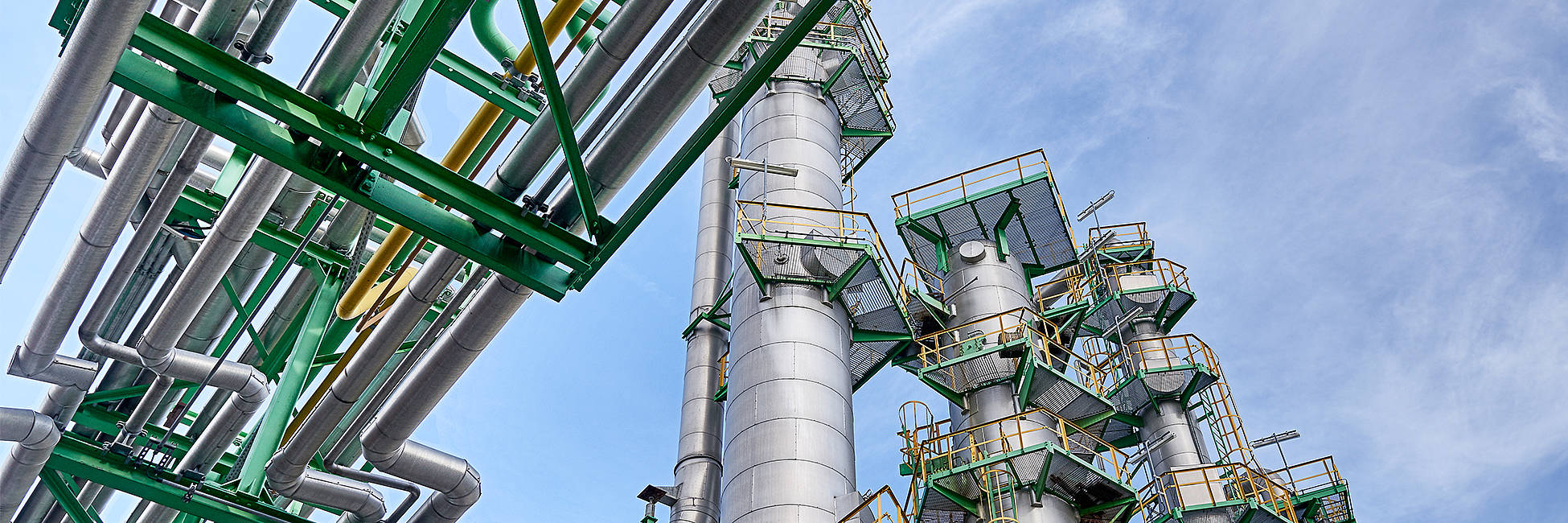
PHONE: + 49 3628 66048-2900

Engineering plants to produce sodium cyanides with the highest technical safety standards and the highest profitability.
HCN-Derivate
HCN, hydrogen cyanide also known as hydrocyanic acid, is an extremely reactive raw material for the chemical industry. It is therefore used in many industrial and mining processes.
Using the latest economic and ecological knowledge, EPC Group delivers HCN plants to produce the following derivatives:
- Acetone cyanohydrin (ACH)
- Adiponitrile (AND) and hexamethylenediamine (HMDA)
- Sodium cyanide (NaCN)
- Cyanuric chloride (C3Cl3N3)
- Intermediate pharmaceutical products, and chemicals for agricultural applications
- Additives and cleansers
NaCN
One of the uses of sodium cyanide is to leach gold out of gold-bearing ores. It is produced from hydrogen cyanide by a manufacturing technology that is based on the Andrussov process. This process for producing hydrogen cyanide is especially environmentally friendly and cost-effective. The hydrogen cyanide is subsequently used as the raw material for making NaCN. EPC has combined this comprehensive know-how with its own turnkey knowledge to create the first genuinely environmentally friendly NaCN plants, which also meet the highest technical safety standards.
Working together with a well-known manufacturer, EPC constructed the first turnkey plant in 2010. It has an annual capacity of 40,000 tons of sodium cyanide.
EPC Exclusives
Process development
We have been working with strong partners for many years to develop our processes. Renowned institutes – such as the Thuringian Institute for Textile and Plastics Research (TITK) and the Fraunhofer Institute – value their cooperation with EPC. In this way, we have built up an impressive potential for innovation. Working together with our customers, this process development has created many attractive new processes for new products. In recent years, EPC has designed and constructed a large number of research and pilot plants for various fields of application. The most recent has been the pilot carbon fibre plant at the TITK in Rudolstadt.
Simulation of critical stages in the design of a process
Simulating the crucial basic operations (e.g. reactions, rectifications, washing) of a process helps to identify and eliminate any weak points. Safety measures can be derived from the results of the simulation, and simulations also help the EPC specialists to select the most suitable technologies.
Customized plant layout
The layout of a plant depends on a wide range of constraints and conditions, for example the process requirements, the amount and arrangement of the equipment, fire and explosion protection requirements, operating and maintenance concepts, whether the plant is located in a new or existing building, open or closed architecture, and so on. In each case, EPC can develop the optimal layout for the plant and meet the customer's specific requirements. This applies to both the construction of a new plant and to the extension or revamping of an existing plant.







